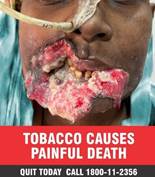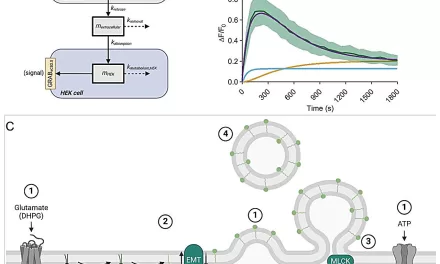Adults over 50 with persistent loneliness face 56% higher stroke risk, study reveals
A new study has revealed that adults over the age of 50 who experience chronic loneliness have a 56% increased risk of stroke. This increased risk, however, does not apply to those experiencing situational loneliness, supporting the theory that prolonged loneliness significantly contributes to stroke risk.
“Our findings suggest that individuals who experience chronic loneliness are at higher risk for incident stroke,” said Dr. Yenee Soh, research associate of social and behavioral sciences at the Harvard T.H. Chan School of Public Health. “It is important to routinely assess loneliness, as the consequences may be worse if unidentified and/or ignored.” The study’s findings were published online on June 24 in eClinicalMedicine.
Significant, Chronic Health Consequences
Loneliness, exacerbated by the COVID-19 pandemic, is now at an all-time high. A 2023 report by the Surgeon General highlighted the significant and chronic health consequences linked to loneliness and social isolation. While previous research has connected loneliness to cardiovascular disease, few studies have examined its relationship with stroke risk. This new study is one of the first to analyze the association between changes in loneliness and stroke risk over time.
Using data from the 2006-2018 Health and Retirement Study, researchers examined the link between loneliness and incident stroke. In the study, 12,161 participants over the age of 50 with no prior history of stroke responded to questions from the Revised UCLA Loneliness Scale between 2006 and 2008. From these responses, researchers generated summary loneliness scores.
Four years later, from 2010 to 2012, the 8,936 remaining participants answered the same questions again. Based on their loneliness scores at the two timepoints, participants were divided into four groups:
- Consistently low: Low loneliness scores at both baseline and follow-up
- Remitting: High loneliness scores at baseline and low at follow-up
- Recent onset: Low loneliness scores at baseline and high at follow-up
- Consistently high: High loneliness scores at both baseline and follow-up
Incident stroke was determined by participant reports and medical record data. Among participants whose loneliness was measured only at baseline, 1,237 strokes occurred during the 2006-2018 follow-up period. Among those who provided two loneliness assessments, 601 strokes occurred during the follow-up period.
Even after adjusting for factors such as social isolation, depressive symptoms, physical activity, body mass index, and other health conditions, the study found that participants who reported loneliness at baseline had a 25% increased stroke risk compared to those who did not (HR, 1.25; 95% CI, 1.06-1.47). Those with consistently high loneliness had a 56% increased risk for incident stroke compared to those who did not report loneliness at both timepoints (HR, 1.56; 95% CI, 1.11-2.18).
Physiological and Behavioral Factors
The researchers did not delve into the underlying issues contributing to the link between loneliness and stroke risk but speculated on several potential factors. These include inflammation caused by increased hypothalamic pituitary-adrenocortical activity, poor medication adherence, smoking, alcohol use, and other psychosocial issues.
“Since loneliness is a highly subjective experience, seeking help to address and intervene to address a patient’s specific personal needs is important. It’s important to distinguish loneliness from social isolation,” Dr. Soh emphasized. She also noted the role clinicians can play by screening for loneliness and providing appropriate care or referrals to behavioral healthcare providers to mitigate associated health risks.
Progressive Research
Elaine Jones, MD, medical director of Access TeleCare, praised the study for advancing understanding of loneliness as a chronic issue. Dr. Jones, who was not involved in the research, highlighted the need for further investigation into loneliness as a stroke risk factor and pointed out potential differences among individuals experiencing chronic loneliness.
“Personality types may play a role here,” Dr. Jones said. “We know people with positive attitudes and outlooks can do better in challenging health situations than people who are negative in their attitudes. Perhaps those who feel lonely initially decided to join groups, take up a hobby, or re-engage with family or friends, whereas those who are chronically lonely don’t, or can’t, do this.”
She added that chronic loneliness can lead to stress, and “we know that stress chemicals and hormones can be harmful to health over long durations of time.”
The study was funded by the National Institute on Aging, with no conflicts of interest noted.












